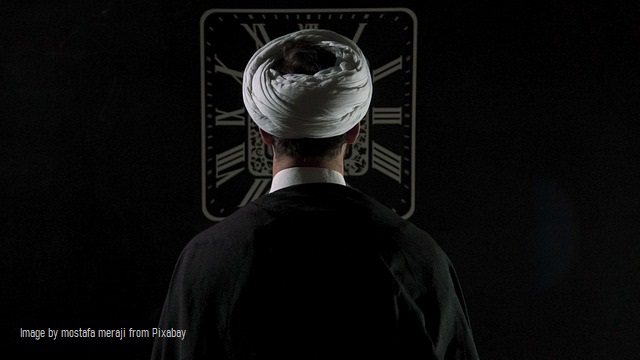Politicians Legitimize Islam

Never in the history of America has a group of power-hungry wolves, known as the Democrat Party, done so much damage to America. Establishment Republicans are not far behind!
Forms of Government
There are several different forms of government in the present world. One such form is Democracy. Democracy is supposed to be a form of government voted into power by the people to serve the best interests of the people. However, translating this superior ideal into reality is complicated and problematic. Yes, it is said that the voter is king in democracy. But this assertion is more of a slogan than a reality. What is left unsaid is that no country can have every voting citizen as king, only one king per country. Besides, in a true democracy, a king is only a symbolic figure with no significant executive or legislative powers.
The actual king in democracy is not the voter but the forces or powers that steer him into voting. The voter must know who he should vote for and what is in it. Potentially, there can be as many differences in vote exercises as there are voters: a recipe for chaos. To avoid confusion and partly to enhance the likelihood of attaining their objectives, like-minded people coalesce by forming interest groups such as labor unions and political parties.
Once this grouping happens, conflict is only one step behind. Different parties compete for their interests with little regard or care for other groups. It is at this point that funds begin to influence the outcome significantly.
The Golden Rule means he who has the gold makes the rule, it is said cynically, yet there is a hefty dose of truth in it.
Democracies are plutocracies—the rule of money. We all know that America is a Republic, not a Democracy. We are closest to the Founder’s intent when we refer to the form of federal government planned and inserted in our Constitution as a “representative republic.” This explains two essential parts of our federal structure: (1) the role of citizens is to vote for representatives and hold them responsible; and (2) the functions of our elected representatives – Congress and the Executive – are to legislate and govern.
Tricky Representation
No community of any size can constitute itself in such a way that every member directly participates in every decision and action of the community. This impracticality, a lesson learned from the early New England settlers’ Town Hall meetings, necessitated electing individuals to represent those people. Money enters the fray with an even more significant impact at this juncture.
An aspirant of any elective office needs funds in proportion to the importance of the office he is seeking. For instance, a person running for a seat in a small town council may require modest funds for handbills, possible newspaper ads, etc.
In contrast, an aspirant for the office of a country’s presidency would need a war chest of hundreds of millions of dollars. And all elected officials are staffing the government from the bottom to the top. And all these people depend on funds to promote themselves and their platforms.
Often, the candidate with a bigger war chest wins the prize—and gets elected. A troubling question is where the person secured the funds and what kind of IOUs he had to issue.
Another troubling question is the person’s true aim to run for office. There must be something in it for him- whatever that may be. We want to think that he is altruistic and devoted to serving his constituents. But who are his actual constituents?
Sadly, many elected or appointed politicians are often driven by ambitions other than serving the people. Volumes can be produced in such cases in democracies. The attainment of office may be merely a means to an end, and the top end is self-serving monetarily or otherwise.
Money and Funds
It is sad that money drives politicians to power and keeps them there. Without money, they would never make it to first base. Without more money, they may languish at first base. To advance further to absolute power, politicians need large sums of money. And people who have money do not give them money without extracting payback. The higher the politician moves, the greater his IOU is to the people and the organizations that own him.
Like every transaction in life, dealing with moneyed people is a barter system. The politician becomes an employee of the funder (s). As is generally the case, the contract favors the employer—the money. The employee, the politician, often finds himself in a trap. He is, in effect, a purchased agent with little or no leeway. If he deviates in the least from his commitment, he may find himself out of work and more.
Moneyed Muslims and Muslim organizations with vast interests in promoting Islam are thoroughly familiar with the power of money to recruit people to do their bidding. That’s why many non-Muslims work at all levels of government and society to further Islam. In short: they are paid to do a job.
And it is the case that powerful institutions and organizations have the means and personnel to accomplish their objectives—whatever they may be.
We are individuals; more often than not, we are outmanned and outgunned by these group forces. Lone Rangers win only in make-believe movies. In real life, governments, institutions, and organizations are the ones who prevail. They have the funds to buy the services of the media; employ lawyers, politicians, and mercenaries of all stripes.
I have been asked to run for the US Congress and try to save our republic against the encroachment of Islamic ideology. America desperately could use a national security expert in the US Congress. As for me, I leave it up to the people to decide. In this business, you need name recognition and considerable funds.
©2023. Amil Imani. All rights reserved.


Leave a Reply
Want to join the discussion?Feel free to contribute!